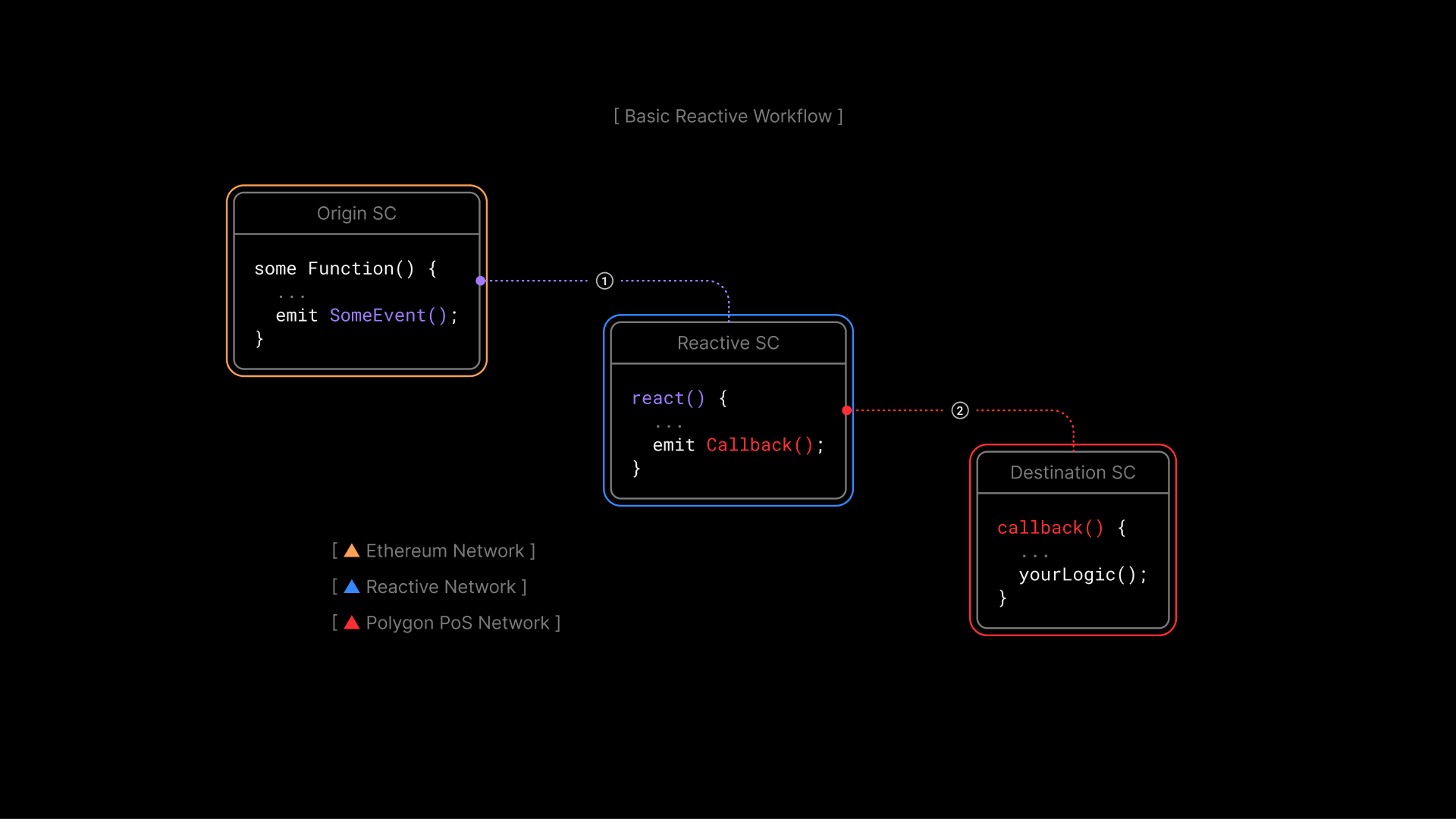Reactive Smart Contracts: What They Are and Why We Need Them
Introduction to Reactive Smart Contracts
Reactive Smart Contracts (RSCs) represent a paradigm shift in how we interact with blockchain technology. Unlike traditional smart contracts that are run by user transactions, RSCs actively monitor events on EVM-compatible chains and react to them. They process these events according to the implemented logic and execute further actions on the blockchain autonomously. This innovation introduces a decentralized mechanism for automating responses to on-chain events without manual actions.

Why Reactive Smart Contracts
In the Ethereum world, smart contracts have revolutionized how we conceive of executing trustless agreements. Traditionally, these contracts spring into action only upon a user-initiated transaction. This presents inherent limitations. For one, smart contracts can't autonomously initiate actions or respond to blockchain events without an external prompt — either from a user or an automated script like a trading bot. This requires holding private keys and introducing a centralized point of control.
Reactive Smart Contracts (RSCs) emerge as a solution to this constraint. RSCs are designed to autonomously react to events in the Ethereum Virtual Machine (EVM) and trigger subsequent actions across the blockchain ecosystem. This capability for the implementation of complex logic that can source information from multiple chains and enact changes or transactions across various platforms without a central oversight.
The Advantages of RSCs
Decentralization: RSCs operate independently on the blockchain, eliminating centralized points of control and improving security by reducing the risk of manipulation or failure.
Automation: RSCs automatically execute smart contract logic in response to on-chain events, reducing the need for manual interventions and allowing for efficient, real-time responses.
Cross-Chain Interoperability: RSCs can interact with multiple blockchains, enabling complex cross-chain interactions that enhance versatility and bridge gaps between networks.
Enhanced Efficiency and Functionality: By reacting to real-time data, RSCs boost the efficiency of smart contracts, supporting advanced functionalities like complex financial instruments, dynamic NFTs, and innovative DeFi applications.
Innovation in DeFi and Beyond: RSCs enable new possibilities in DeFi and other blockchain applications, such as automated trading and dynamic governance, creating a more responsive and interconnected blockchain ecosystem.
About This Course
To equip developers with the skills to harness RSCs, we've created a comprehensive course with detailed documentation and hands-on tutorials. Our goal is to foster a collaborative space where developers can explore the full potential of RSCs.
The course offers lectures, GitHub code examples, and video demonstrations for a multi-faceted learning experience. Whether you're interested in theory or practical use cases, this course adapts to your needs.
Throughout the course, we will examine various applications of RSCs, including:
- Implementing Uniswap stop orders through RSCs
- Synchronizing NFT ownership over several chains
- Automatically collecting staking rewards from different pools and chains
Conclusion
Reactive Smart Contracts (RSCs) represent a major leap in blockchain technology by enabling autonomous execution of complex logic without user intervention. Unlike traditional EVMs, RSCs can automatically respond to events from multiple blockchains, allowing for flexible cross-chain interactions. This unique reactivity and versatility make RSCs a valuable tool for developers aiming to build more dynamic and interconnected decentralized applications. Join our Telegram group and explore the frontier of blockchain technology, where your creativity and expertise can help shape the future of decentralized applications.